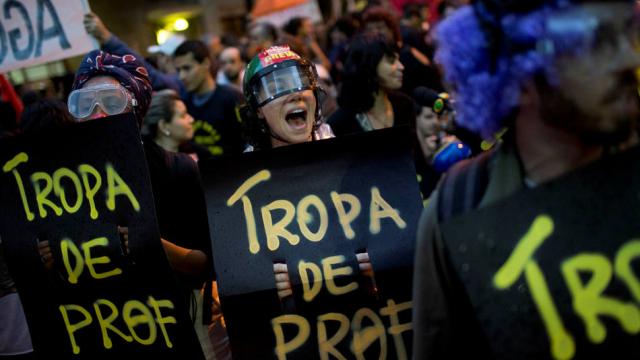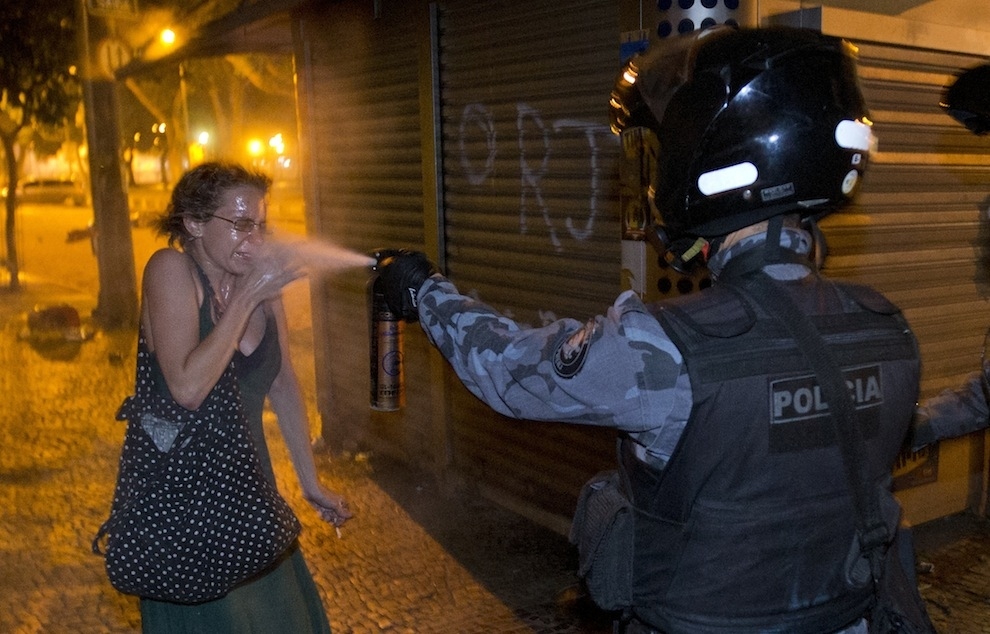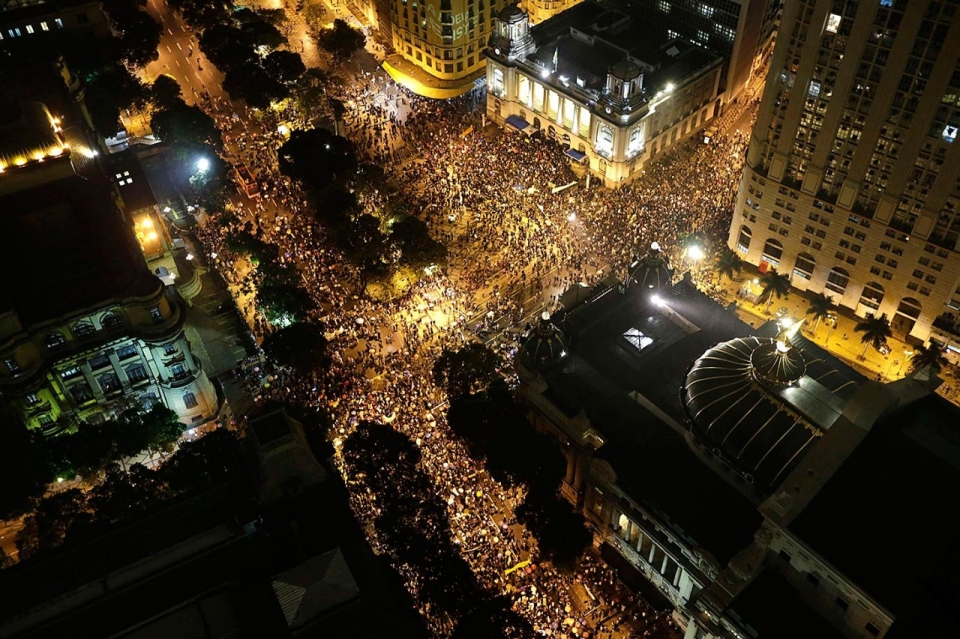
RIO DE JANEIRO – In June, Brazilians kicked off the Confederations Cup with massive protests, showing the world that Latin America's largest nation remains tired of poor healthcare, corrupt government and a lacking education system. Though the news machine never stops and the world has turned its focus elsewhere, Brazilians continue to protest for improvements. And the latest fight continues to be for better education
In August, public state school teachers in Rio de Janeiro went on strike demanding a higher wage-floor, smaller head count per class, air conditioning, refurbishing and renovation of current schools, construction of new schools, French and Spanish classes, more planning hours and less working hours.
The Sindicato Estadual dos Professores do Rio de Janeiro, or Rio de Janeiro State Teachers Union (Sepe-RJ), gained wide popular support after 200 teachers were brutally removed from occupying the town hall in October. “They got here hitting us, dragged us out, older ladies were crushed,” math teacher Edson de Oliveira told the newspaper O Dia. “I saw many colleagues on the floor, hit by shock weapons. It the military police says we reacted, it’s a lie.”
Sepe-RJ’s press director Vera Nepomuceno complained to O Globo newspaper that the police were there to remove protesters but never to protect the people. “I’ve had to hide a thief’s gun in a school and I didn’t have any police to protect me,” she said.
The photos, videos and testimonies of what happened in the town hall quickly spread across the Internet. Much like in June, people spontaneously organized a major protest that gathered 10,000 in the center of Rio de Janeiro on October 15.
“The population’s support was fundamental for us,” said union director Ivanete Conceição da Silva, who claimed there were actually closer to 100,000 people in the streets that night but the media diminished the numbers. “It was validation that our fight is legitimate. I think that the population understands that education is a constitutional right.”
Alex Trentino, another union director, said Brazilians recognize the pains that public teachers go through every day in an under-funded system -- and the solidarity has helped pull people together. “The policies, both municipal and state, have resulted in a strike because of the conditions of public schools," he said.
"The population knows that teachers suffer, they give value to the teaching profession. But there hasn’t been a real investment in it for a while.”
Ivanete says another driving force behind the protests was the alternative online media. Since the bus fare protests that ignited in June, Brazil's mainstream media have stood clearly against the popular movements. In contrast, the website Mídia Ninja reported and streamed information from the ground, helping spread news about the protests that was not presented in the mainstream.
“Unfortunately there is a political alignment in the media that serves the present government,” added Ivanete. “Their agenda has not served the social movements, and it often distorts our voices and covers up real events.”
“The alternative media has this opening: to cover the facts as they actually happen. This kind of coverage allows the population to [draw] their own conclusions. Today we cannot, in any form or shape, disregard these organizations that are breaking the monopoly the [corporate] media have held for so long.”
Some weeks ago, Sepe-RJ decided to call off a planned strike as some of the group's demands had been met. Their wage floor has been raised by 15% -- only 5% short of the original demand -- and other changes in response to their protests are underway. But the union director Trentino warned that if the amendments don’t happen soon, strikes will continue.
“We made a deal with the Supreme Court and there is a series of demands to be attended. If they are not seen to, we will go back to striking. Regardless, the fight continues. We are having discussions with parents about working conditions that are very bad,” he said.
But fellow unionist Ivanete thinks the battle for education goes much further than Rio de Janeiro -- and well beyond Brazil. She said the fight for education has become a global unifier, especially because of social media.
“First there was recognition locally, [then] the way in which education is an international fight. The student movement has gone to the streets, and the progress of demands for a better life [is spreading] in other countries. Through this movement, Brazil managed to place itself in the same entrenched camp among education professionals and students [worldwide],” she said.
To those wondering if the protests will continue through this summer, when Brazil hosts the World Cup, Ivanete said absolutely. “The movement in general will get more voltage, and in Rio especially. Because of the big events, people will go back to the streets.”
3 WAYS TO SHOW YOUR SUPPORT
- Log in to post comments













